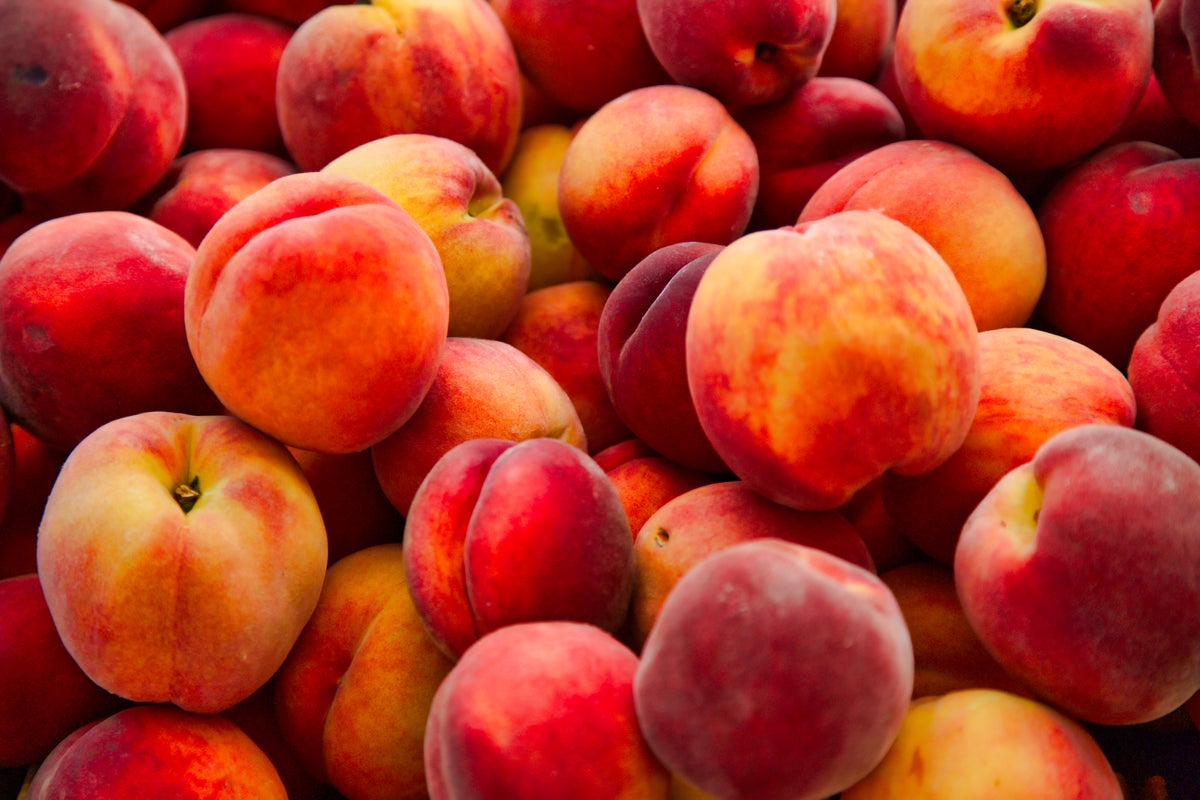Fruit recall invokes fears of a food safety crisis, reminiscent of biblical plagues as Listeria threatens national health and consumer trust amid a frenzy of marketing deception and corporate irresponsibility!
Moonlight Companies, a supplier of white and yellow peaches, has recently found itself at the center of a major food safety crisis after recalling its products over potential Listeria contamination. This alarming development not only raises significant health concerns for consumers but also highlights the systemic vulnerabilities within the U.S. food supply chain. Retail giants such as Kroger, Sprouts, Food Lion, and Trader Joe’s are among the establishments affected by this recall, reflecting a widespread issue that could potentially undermine public trust in the food industry at large.
Listeria monocytogenes, the bacteria responsible for Listeriosis, is particularly dangerous, posing severe risks to vulnerable populations, including pregnant women, newborns, older adults, and individuals with weakened immune systems. This bacteria can cause serious health issues ranging from fever and muscle aches to more severe complications like meningitis and septicemia. The susceptibility of certain groups to this infection exacerbates the public health implications of such a recall, creating an urgent need for consumers to stay informed about their food sources.
The implications of the Moonlight Companies recall extend beyond mere consumer health concerns. It brings to light the complexities of modern food distribution networks, where products often traverse vast distances before reaching grocery store shelves. The peaches in question are likely harvested from large orchards, subjected to processing and packaging, and distributed across state and national lines. Each step in this supply chain introduces numerous opportunities for contamination, resulting in a cat-and-mouse game between food producers and health regulators.
The recent peach recall serves as a reminder of several past food safety incidents that have invoked national alarm. The widespread E. coli outbreak traced to contaminated spinach in 2006, the infamous peanut butter Salmonella scare of 2009, and the recurring issues with romaine lettuce recalls due to Listeria or E. coli are just a few cases that underscore an ongoing struggle to ensure food safety in an increasingly complex and interconnected food system. Each incident led to heightened scrutiny of production practices and greater demand for rigorous food safety regulations.
Moonlight Company’s scenario illustrates how financial incentives can sometimes overshadow safety protocols within the food industry. Companies may prioritize profit margins over stringent testing and quality assurance measures, raising questions about whether the current regulatory framework is adequate to protect consumers. This tension between business interests and public health is reminiscent of broader debates about corporate responsibility and ethics, revealing a critical socio-economic divide in how society values health versus profit.
For consumers, the implications are not merely abstract. As they stroll through the grocery store aisles, they are faced with a multitude of choices, often unaware of the risks hidden in the products they select. Consumer trust in food safety is paramount, and occurrences like the Moonlight Companies recall can lead to hesitancy and skepticism towards the very institutions designed to ensure their well-being. Grocery chains must engage in transparent communications with their clientele, educating them not only about recalls but also about how food safety standards are enforced in their stores.
Furthermore, the inconsistencies in food safety standards across state lines exacerbate the problem, as regulations can vary significantly. For example, some states may have stricter agricultural standards than others, leading to a patchwork of safety practices in which consumers in one region might have a higher risk of encountering contaminated products than those in another. Efforts to standardize food safety regulations at the federal level have been ongoing, yet achieving consensus among stakeholders remains a convoluted process.
Advocacy groups play a crucial role in pushing for better food safety practices, demanding greater accountability from food producers and regulators. They highlight not only the need for immediate action, such as the recall of contaminated produce, but also the need for systemic changes to prevent future outbreaks. This underscores the relationship between consumer safety, corporate practice, and governmental oversight— a triad that is frequently under scrutiny, especially in light of recurrent food safety incidents.
Consumer education is essential in a landscape where recalls are becoming more frequent. Organizations advocate for clear labeling practices that inform consumers about their food and its origins, as a transparent food supply can empower shoppers to make informed choices. With increasing technological advances, initiatives like blockchain technology are being proposed to trace food from farm to fork, ensuring that consumers can verify the safety and quality of their purchases.
The Moonlight Companies recall raises deeper questions about the integrity of the food industry and regulatory measures, igniting debates that echo broader societal issues related to safety, trust, and corporate ethics. The dynamic food landscape is not merely a backdrop for routine purchases but a complex web of relationships that can influence health and well-being on a national scale. As consumers navigate these challenges, the ongoing saga of food safety demonstrates the fragility of the food system and the pressing need for vigilance, accountability, and meaningful reform.
Moonlight Companies sold white and yellow peaches at major retailers such as Kroger, Sprouts, Food Lion and Trader Joe’s




